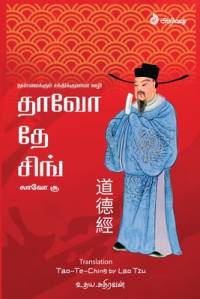Om Tao-Te-Ching
Tao-Te-Ching is one of the classics of spiritual literature, written more than two thousand years ago. The Tao Te Ching describes the Tao (compared to Brahman) as the source and ideal of all existence: it is unseen, but not transcendent, immensely powerful yet supremely humble. Many people act unnaturally, upsetting the natural balance of the Tao. The Tao Te Ching intends to lead people to return to their natural state, in harmony with Tao. Wu Wei literally "non-action" or "not acting", is a central concept of the Tao Te Ching. The concept of wu wei is multifaceted, and reflected in the words' multiple meanings, even in English translation; it can mean "not doing anything", "not forcing", "not acting" in the theatrical sense, "creating nothingness", "acting spontaneously", and "flowing with the moment"According to Chinese tradition, Laozi (Lao Tzu) lived in the 6th century BCE. Historians variously contend that Laozi is a synthesis of multiple historical figures, that he is a mythical figure, or that he actually lived in the 5th-4th century BCE, concurrent with the Hundred Schools of Thought and Warring States Period. As a result of being a aentral figure in Chinese culture, both nobility and common people claim Lao Tzu in their lineage.
Visa mer

